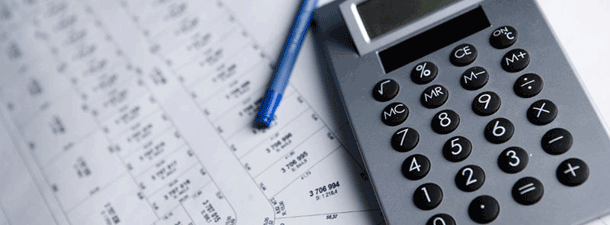As the prospect of a double dip recession looms, UK SMEs (Small and Medium Enterprises) are preparing to endure increasingly tougher trading conditions. Despite this, new research from unbiased.co.uk’s Small Business Tax Action Report* reveals that SMEs are set to waste a massive £7.15 bn in unnecessary payments to the taxman this year. This equates to an average of just over £1,500 for each of the 4.5 million small to medium sized businesses in the UK.
– Average UK SME is set to waste £1,589 in unnecessary tax payments in 2012
– Biggest area of tax waste is caused by not incorporating the business, accounting for £4.2bn of wastage
Unbiased.co.uk’s annual Tax Action Report, looks at the average amount of tax we waste as a nation. This year’s edition includes for the first time a specific section looking at the key areas of tax wastage amongst SMEs. The Small Business Tax Action Report examines the savings SMEs could make by making better use of the array of allowances, tax credits and tax efficient business support schemes that are at their disposal.
Unbiased.co.uk’s report reveals that the number one area of tax wastage for SMEs is incorporation, which stands at more than £4.22 billion alone, followed by failure to make use of self-employed contractors (£2.05 billion) and research and development relief (£373 million).
The most significant tax wastage for SMEs is being accumulated by sole traders and partnerships through not incorporating their business – i.e. not turning it into a limited company or limited liability partnership. There are currently around 1.3 million businesses in the UK that could benefit from different income tax breaks and savings on national insurance contributions if they changed their legal status.
The second highest area of tax wastage could be addressed by companies making more use of self-employed contractors within the legal guidelines.2 While there is some evidence of so called ‘disguised employees’ (individuals leaving a company to become self-employed but continuing to work in more or less full time employment for the company), it is important to point out that this practice is considered illegal. However, there is an existing and legal tax advantage for both the employee and the employer to make more use of self-employed workers and this could potentially save businesses as much as £2 billion in tax this year.
A potential move of existing employees into self-employment is most likely to be suitable for higher income earners who can afford the transition and have the professional experience to offer their services as a sole trader – not only to their previous employer but also to other companies.
Businesses should take care to consult with a professional adviser to ensure they are aware of the latest rules and regulations around the most tax efficient use of employees and the overall advantages of contracting out.
Research and development relief (R&D relief) is another area of tax relief under-utilised by SMEs in Britain. In the current tax year, research and development expenditure carries a 200% deduction against profits (essentially halving a business’s taxable income) and this is set to rise to 225% in the 2012/13 tax year. Currently only 12% of eligible businesses make use of R&D relief, and if that proportion was to double, businesses would save £373 million in wasted taxes this year alone.
Karen Barrett, Chief Executive of unbiased.co.uk comments: “Our Small Business Tax Action Report reveals that more than £7bn is being wasted by SMEs failing to take advantage of allowances and tax credits. The majority of this waste is down to businesses failing to understand what George Osborne calls the ‘spaghetti bowl’ of the UK tax relief system.
“Tax is a vast and complex subject and business owners often simply do not have the time to manage their tax affairs or understand the allowances available to them whilst also running their business day to day.
Currently over three in five(1) small business owners say they use a professional adviser, such as an accountant or independent financial adviser (IFA) for their business and it is these professionals who can really make a difference to the amount of tax a business pays.
“A professional adviser can help you to understand your business’s tax liabilities, make sure you are using any tax breaks available to you and assist you in keeping up to speed on the impact of potential changes to current tax rules for you and your business. They can also free up your time, allowing you to focus on what you do best – running your business. To find an accountant or IFA for you or your business, go to www.unbiased.co.uk for a free and confidential search.”



















